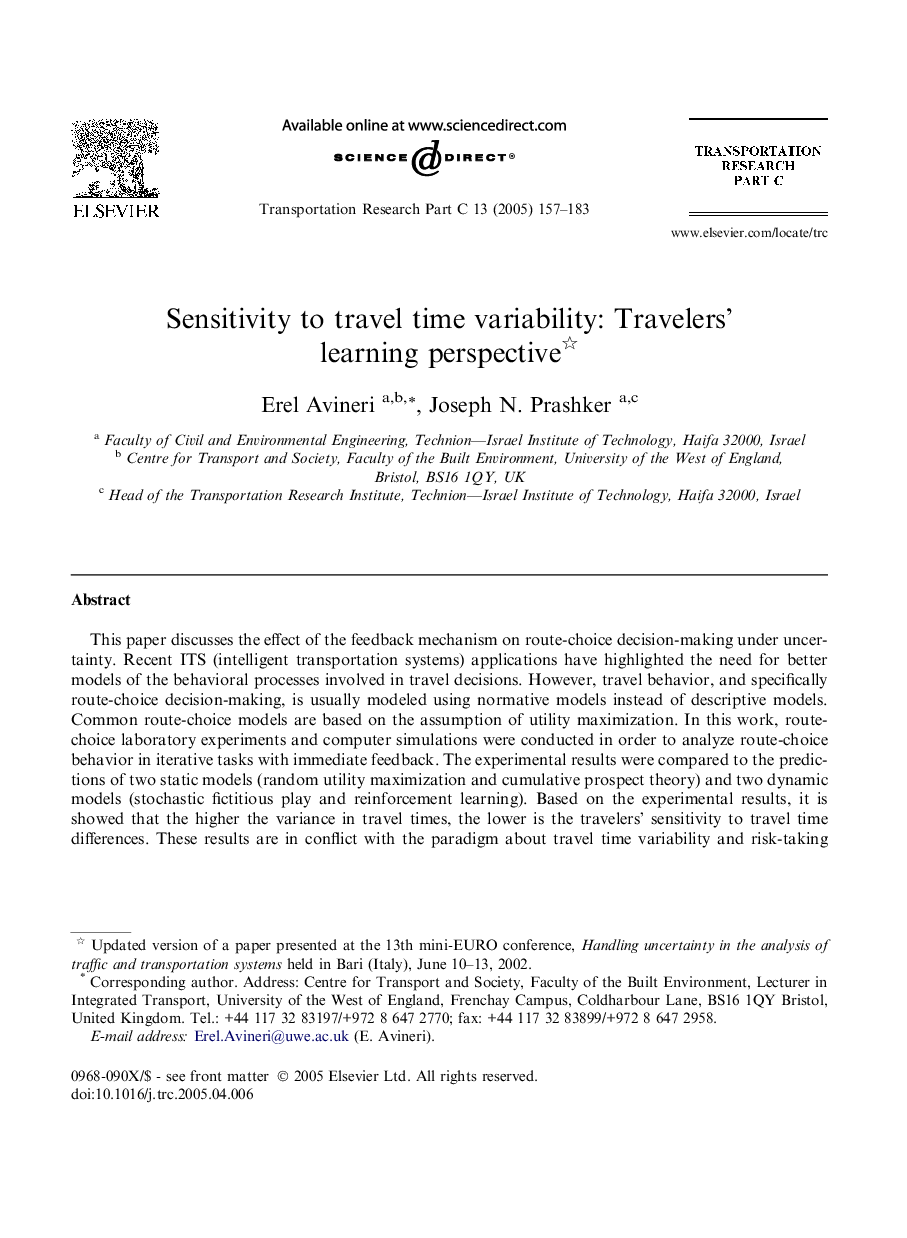| Article ID | Journal | Published Year | Pages | File Type |
|---|---|---|---|---|
| 10359111 | Transportation Research Part C: Emerging Technologies | 2005 | 27 Pages |
Abstract
This paper discusses the effect of the feedback mechanism on route-choice decision-making under uncertainty. Recent ITS (intelligent transportation systems) applications have highlighted the need for better models of the behavioral processes involved in travel decisions. However, travel behavior, and specifically route-choice decision-making, is usually modeled using normative models instead of descriptive models. Common route-choice models are based on the assumption of utility maximization. In this work, route-choice laboratory experiments and computer simulations were conducted in order to analyze route-choice behavior in iterative tasks with immediate feedback. The experimental results were compared to the predictions of two static models (random utility maximization and cumulative prospect theory) and two dynamic models (stochastic fictitious play and reinforcement learning). Based on the experimental results, it is showed that the higher the variance in travel times, the lower is the travelers' sensitivity to travel time differences. These results are in conflict with the paradigm about travel time variability and risk-taking behavior. The empirical results may be explained by the payoff variability effect: high payoff variability seems to move choice behavior toward random choice.
Related Topics
Physical Sciences and Engineering
Computer Science
Computer Science Applications
Authors
Erel Avineri, Joseph N. Prashker,
